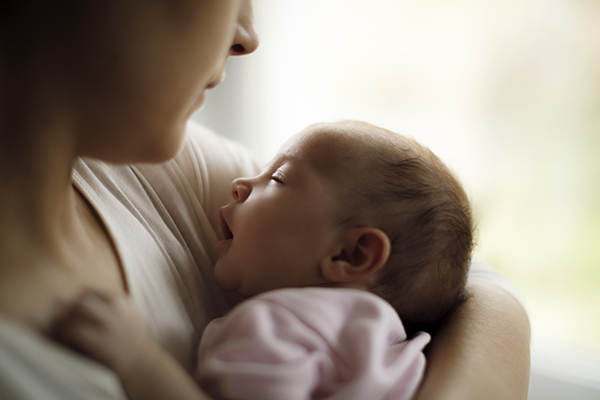Does Breastfeeding Help You Lose Weight?

It’s true that breastfeeding burns calories and may help lower body mass index.
But if postpartum weight loss is your goal, you can’t skip the basics: movement, total calories, and quality whole foods for nutrients.
Of course, there are plenty of benefits to breastfeeding beyond the calorie burn, and the American Academy of Pediatrics recommends that mothers exclusively breastfeed babies for the first six months of life.
Ultimately, the decision of whether or not to breastfeed, how often to do it, and when to stop is highly individualized.
Here’s what to know about the link between breastfeeding and weight loss.

Does Breastfeeding Help You Lose Pregnancy Weight?
Short answer: Breastfeeding can help burn extra calories, but it isn’t the golden ticket to get back to pre-baby weight.
Since breastfeeding is so labor-intensive for the body, the CDC (Centers for Disease Control and Prevention) recommends consuming 330 to 400 extra calories per day to ensure you’re meeting your nutritional needs while breastfeeding.
But just because you’re burning more calories while breastfeeding, that doesn’t necessarily mean you will lose weight, points out Laura Gruber, international board-certified lactation consultant, registered lactation consultant, and owner of Breastfeeding Housecalls.
One study found that exclusively breastfeeding for six months could help some women eliminate the weight gained during pregnancy (an average of 26 pounds).
But these findings didn’t hold for the women who were heaviest before they got pregnant.
Another study found that women who had breastfed their babies not only had a lower body mass index (BMI) than those who did not breastfeed, but they also decreased their BMIs by one percent for every six months they breastfed.
Lowering this score can be healthy, but it’s also important to remember that BMI has flaws.
You can reduce your BMI by losing fat, but your BMI also lowers when you lose valuable, calorie-burning muscle.

How Breastfeeding Can Support Weight Loss
Paired with a healthy lifestyle and thoughtful nutrition plan, breastfeeding can help you slim down to your pre-pregnancy weight more quickly — if you’re careful.
Keep these tips in mind for healthy weight loss while nursing.
1. Make sure you’re eating enough
Eat enough calories to fuel your body properly for nursing and whatever exercise program you may be doing.
A nutrition program like 2B Pregnant to help you thrive during your pregnancy — and after the baby arrives.
Registered Dietitian Ilana Muhlstein, M.S., R.D.N., created 2B Pregnant to help moms navigate the challenges of eating during pregnancy while creating a lifetime of healthy habits for you and your family.
2B Pregnant focuses on all the delicious food you CAN have while helping optimize your nutrition for each trimester to support your baby’s growth and development.
Ilana shares her most effective strategies for overcoming obstacles like cravings, emotional eating, managing weight gain, nausea, indigestion, constipation, and exhaustion.
Pro tip: Learn more about 2B Pregnant here.
2. Expect some appetite changes
Some women struggle to eat enough calories to maintain their weight while breastfeeding, resulting in weight loss.
Others feel much hungrier and eat more as a result.
Listen to your hunger cues when you’re breastfeeding. Research suggests intuitive eating may support postpartum weight loss.
3. Cut yourself some slack
While it’s always a good idea to get as many calories as possible from nutrient-dense whole foods, some nutrient-light calories — like from snack foods — shouldn’t cause undue stress.
As long as you’re eating healthy most of the time, don’t sweat the occasional treat. It’s more important to maintain a healthy relationship with food.
4. Be patient
It’s essential to keep in mind that postpartum weight loss takes time — it’s not an overnight thing.
If the baby weight isn’t peeling off right away, that isn’t necessarily a reason to lower your calorie intake.
You’re still technically “eating for two” when you breastfeed, and your health — and that of your baby — are more important during this time than weight loss.